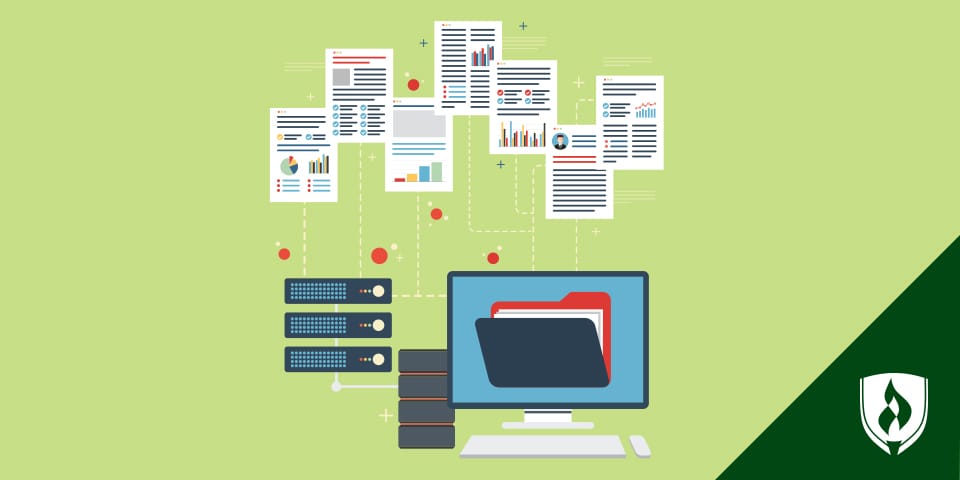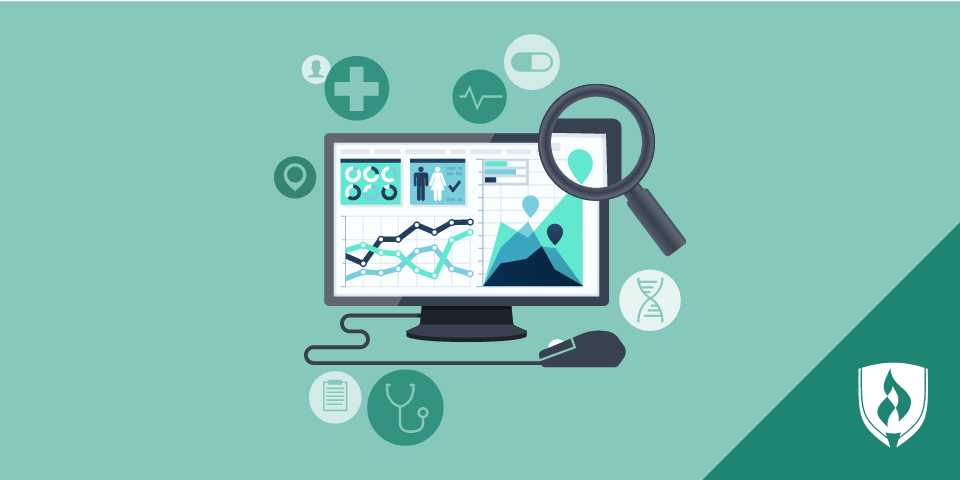
A career in healthcare has always sounded appealing to you. It’s a rock-solid industry that can have a direct positive impact on the lives of patients and their families. While patient-facing roles like nursing (and the hands-on unpleasantness that can come with them) aren’t your preference, the field of health information has certainly caught your interest. Ensuring that patient information is communicated clearly and securely is important for the entire health system and especially important for quality patient care. Health information professionals see the patient in a way that no other healthcare workers do.
You might not know it yet, but there’s a surprising variety of health information roles out there for you to potentially pursue as you progress along this career path. Many health information roles may seem fairly similar—but there are also plenty of differences you’ll want to be aware of as you plot your future career goals and roles.
“If you’re interested in health information, there’s something for everyone,” says Linda Kennedy, Health Information Management Department Chair at Rasmussen University.
To help you get a better idea of what’s out there and the differences between these roles, we’ve highlighted several options and placed them into categories that roughly align with how you may progress along a health information career path.
Early career health information roles
Learn more about some of the positions you may encounter early on in your health information career.
Medical biller
Medical billers, sometimes called billing clerks, help the keep the business side of the healthcare system running by submitting medical claims to insurance companies or government providers from physician offices, hospitals, nursing homes and other healthcare clinics. They resolve problems with billing errors and denials and act as a liaison between the HIM department of a healthcare provider and insurance companies.
These professionals have a lot of responsibility for protecting patient and physician confidentiality. They also have to stay up-to-date on coding changes and government regulations. Knowledge of medical terminology, medical codes and computer skills is vital. While previous experience is preferred, earning a Medical Billing and Coding Certificate might be a good first step to get to know the industry, learn medial coding skills and learn more about industry certifications.
Patient registrar
Patient registrars have a more visible role in the handling of patient information. Patient care registrars take and make calls, serving as a liaisons between the patients and medical support staff. They’re often responsible for recording patients’ clinical and financial information including their insurance information and visit schedule. They also prepare new patient medical charts and are able to release medical records to patients, physicians, or third parties through the correct processes.
Patient registrars are exceptionally organized individuals able to handle complex medical charts. While experience with computers and programs like Word and Excel is important, medical knowledge can also be helpful. Patient registrars benefit from knowing medical terminology and the basics of medical billing. A high school diploma is required to apply to most patient registrar positions. Some employers may prefer candidates with experience in a medical office.
Insurance claims specialist
Insurance claims specialists work for insurance companies to determine coverage for the various claims that come in. They’re able to prepare claim forms and related documents, and flag claims that may need further investigation. A basic understanding of billing and coding can prove invaluable in day-to-day duties. Skills like social perceptiveness and critical thinking can also make you a strong candidate. While a high school diploma is required, though some college or an Associate’s degree is often preferred by employers.
Intermediate health information roles
The following health information jobs will likely require a bit more experience or education in order to land.
Health information technician
Health information technicians (HIT) play a vital role in the maintenance and security of patients’ health records. They use a variety of classification systems to code patient information for billing purposes and work within electronic health records systems to ensure the completeness and accuracy of the patient’s personal and health information. When a patient’s records need to be released, they maintain confidentiality and follow HIPAA Standards.
You’ll find health information technicians anywhere where electronic health records are used, though requirements between those employers may vary. Most require the equivalent of one year of college and formal medical record technician training. This can mean pursuing an Associate’s degree and a HIT certification like RHIT, RHIA, CCS, CCS-P.
Release of information (ROI) specialist
Release of information (ROI) specialists have a particular role in the management of patients’ health information. They often have the same credentials as health information technicians, but take on a more specialized job role. ROI specialists collect information from various departments to compile in a patient’s medical record. They prepare medical records for release to other physicians, medical offices or to the patient for personal use.
ROI specialists can work for physicians, hospital systems or agencies that contract with hospitals. They should have a deep understanding of HIPAA and state regulations for the release of information and any state regulations that apply to health records. To land one of these roles, you’ll need at least a high school diploma—but often an Associate’s degree in a related field and RHIT certification are preferred.
Advanced health information positions
Get a taste of the health information roles you may advance into with the proper education and experience.
Health information manager
A health information management manager has extensive experience in health information and is able to coordinate and organize all the activities of the department—setting goals, managing the finances, setting polices, assuring quality, and managing the staff.
HIM managers are masters of databases, spreadsheets, and electronic health record systems. They must have extensive knowledge of regulatory agencies and HIPAA. The best managers have excellent interpersonal and communication skills.
If you’re interested in advancing to this position, keep in mind that you’ll need at least an Associate’s degree in health information or a related field, though a Bachelor’s degree is often preferred. Additionally, most health information management candidates will need at least a few years of relevant health information experience. Professional certifications are a common requirement as well.
Revenue systems manager
Revenue systems managers provide leadership to the revenue cycle team while looking for ways to improve the efficiency of the billing revenue system. They provide analysis, create new processes and supervise a cross-functional team.
This role requires a lot of knowledge about registration and financial practices while still having the communication and leadership skills you would expect of a manager. As you might expect, this position typically requires substantial experience in medical billing management and will likely require a Bachelor’s degree in a relevant subject like Health Information Management.
Getting started on a health information career path
Now that know more about some of the potential health information careers out there, are you ready to take the first step on the path to a career in this field? At Rasmussen University, there are Health Information programs that can fit your education needs for nearly any stage of your career. You can start out by earning a Medical Billing and Coding Certificate in as few as 9 months—and that Certificate can seamlessly transition into the Health Information Technician Associate’s degree and Health Information Management Bachelor’s degree if you decide to pursue additional education further down the line.1 Want to learn more? Visit the Health Information Management Studies page.
1Completion time is dependent on the number of transfer credits accepted and the number of courses completed each term.




.jpg)